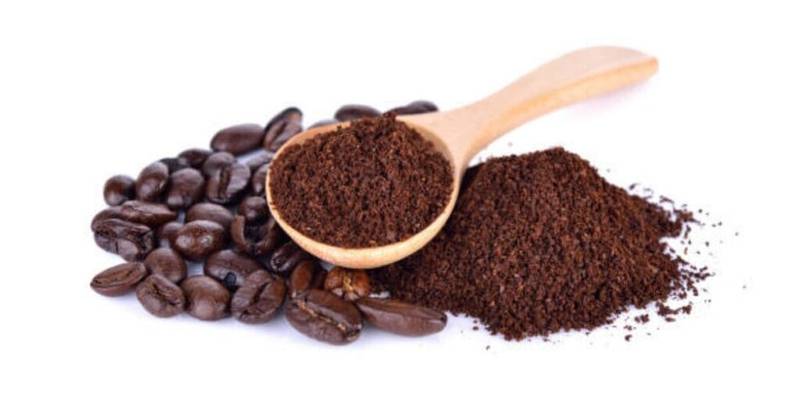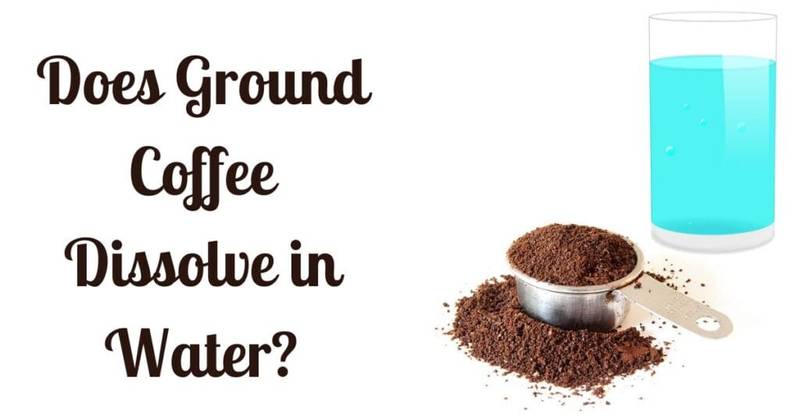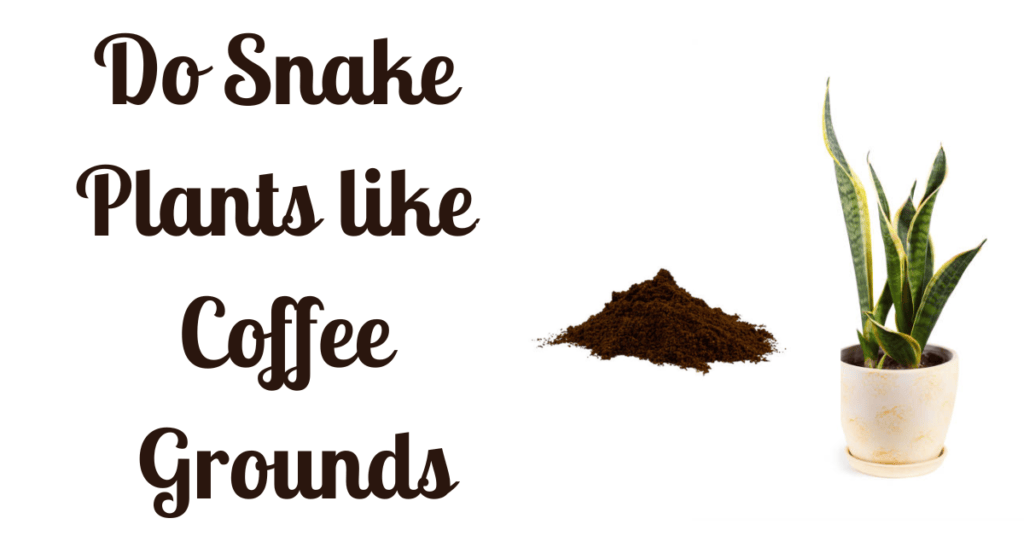Does ground coffee dissolve in water?” is a common question among coffee enthusiasts and those curious about the science behind brewing the perfect cup.
This inquiry delves into the intricate process of coffee extraction, where water acts as a solvent, dissolving soluble compounds within the coffee grounds.
However, it’s essential to clarify that the coffee grounds do not dissolve in water; instead, they transform as the liquid extracts flavors, oils, and aromas from the finely ground beans.
No, ground coffee does not dissolve in water. When you brew Coffee, you extract soluble compounds from the coffee grounds and put them into the water.
The process involves the water dissolving and carrying away flavors, oils, and other compounds from the coffee grounds.
However, the coffee grounds do not dissolve; they remain solid particles separated from the liquid through filtration or other brewing methods.
In summary, while the soluble components of Coffee dissolve in water during the brewing process, the physical coffee grounds do not dissolve and need to be separated from the liquid to create a smooth cup of Coffee.
In exploring the dissolution dynamics, we aim to uncover the chemistry behind brewing and the key elements contributing to the rich, flavorful cup of Coffee we enjoy daily.
So, does ground Coffee dissolve in water? Let’s embark on a journey to unravel the complexities and nuances of this fascinating culinary experience.
Table of Contents
Does Ground Coffee Dissolve in Water: How to Dissolve Ground Coffee?

Rancid ground coffee can dissolve in water, but its flavor and aroma may deteriorate over time. The dissolved coffee may not taste as fresh or robust as made with recently ground coffee.
Dissolving ground coffee involves the process of brewing or steeping coffee grounds in water to extract its flavors.
Here’s a simple guide on how to dissolve ground coffee:
Ground Coffee Selection:
To begin, choose a high-quality ground coffee.
Opt for freshly ground beans, as they preserve the aromatic oils and flavors essential for a rich cup of Coffee.
Different grind sizes cater to various brewing methods, so select one suitable for your preferred style.
Water Quality:
The quality of water plays a pivotal role in the coffee brewing process.
Use filtered or bottled water to ensure a clean and pure extraction.
Water temperature is equally important; ideally, it should be between 195°F to 205°F (90°C to 96°C) for optimal flavor extraction.
Coffee-to-Water Ratio:
Achieving the right balance between coffee grounds and water is crucial.
One to two tablespoons of coffee grounds per six ounces of water is a standard recommendation.
Adjusting this ratio allows you to control the strength and flavor profile of your Coffee.
Brewing Methods:
Various brewing methods exist, each influencing the dissolution process.
Standard methods include drip brewing, French press, pour-over, and espresso.
Understand the nuances of your chosen approach to extract the desired flavors effectively.
Extraction Time:
The duration of contact between water and coffee grounds significantly impacts the extraction process.
Shorter extraction times, as seen in espresso brewing, produce intense flavors.
In comparison, longer times, as in cold brew, result in a smoother, less acidic taste.
Experimenting with different times helps tailor the Coffee to your preference.
Filtration and Separation:
Once the brewing process is complete, separate the dissolved Coffee from the grounds.
This can be achieved through various methods, such as paper, metal mesh filters, or the natural settling of grounds in methods like French press brewing.
Finally, savor the fruits of your brewing efforts.
Pour the dissolved Coffee into your favorite mug, and, if desired, customize your drink with milk, sugar, or other additives.
The art of dissolving ground coffee in water culminates in a delightful cup tailored to your taste preferences.
More About Coffee Grounds
Coffee grounds are not typically burned for various reasons. They contain organic matter that can release volatile compounds when burned, leading to unpleasant odors.
They can contribute to soil enrichment and provide several advantages.
Used coffee grounds can serve as a beneficial addition to your garden. This includes benefits for roses.
It also has benefits for hydrangeas.
Considering your budget, exploring the cost difference between whole bean and ground coffee is attractive, especially if you’re using coffee grounds. The cost of whole-bean coffee is often slightly higher than ground coffee due to factors like processing and packaging.
Do Coffee Grounds Dissolve in Cold Water?

Coffee grounds do not dissolve fully in cold water as in hot water.
Hard water is not as effective at extracting the soluble compounds from the coffee grounds, such as oils, flavors, and aroma, as heat facilitates this process. Instead, cold water brewing involves a method called steeping or cold brewing.
In this process, the coffee grounds are steeped in cold water for an extended period, often 12 to 24 hours, allowing a slow extraction of flavors.
While the coffee grounds remain largely intact, the extended steeping time enables the cold water to absorb the soluble compounds, resulting in a smooth and less acidic coffee concentrate.
After steeping, the cold brew is typically filtered to separate the grounds from the liquid, producing a flavorful and concentrated coffee that can be diluted with water, milk, or other beverages according to preference.
Does Ground Coffee Dissolve in Hot Water?

No, ground coffee does not dissolve in hot water. Instead, the process involves extracting soluble compounds from the coffee grounds.
Hot water acts as a solvent, dissolving and removing various components such as oils, acids, and flavors from the coffee grounds. This extraction process is crucial for creating the aromatic and flavorful beverage we know as Coffee.
Coffee grounds are composed of insoluble particles that remain in the brewing apparatus after extraction. These grounds must be separated from the liquid Coffee through methods like filtration.
The soluble components, now dissolved in hot water, contribute to the rich taste and aroma of the final coffee brew.
In summary, while the soluble elements in Coffee dissolve in hot water during brewing, the physical coffee grounds do not dissolve; they undergo extraction to create the satisfying cup of Coffee many enjoy.
What Is The Solubility of Coffee?

The solubility of Coffee refers to the ability of its components to dissolve in water during the brewing process. Coffee contains various soluble compounds, such as acids, sugars, lipids, and flavors, contributing to its taste and aroma.
The solubility of these compounds varies at different temperatures, affecting the extraction process.
Caffeine, one of the significant components of Coffee, is highly soluble in water. It dissolves readily during brewing, contributing to the stimulating effect of the beverage. Other soluble compounds, like chlorogenic acids, contribute to the acidity and flavor profile of Coffee.
However, not all components in Coffee are wholly soluble. Insoluble particles, primarily composed of cellulose and other organic matter, make up the coffee grounds after brewing. These insoluble elements require filtration or other separation methods to produce a clear liquid coffee.
In summary, the solubility of Coffee involves a complex interplay of soluble and insoluble components, with the brewing process aiming to extract the desirable soluble compounds while leaving behind the grounds.
How Much Ground Coffee Is Soluble In Water?

The amount of ground coffee soluble in water depends on various factors, including the coffee-to-water ratio, grind size, brewing method, and water temperature. Coffee contains soluble compounds such as flavors, oils, acids, and caffeine, which dissolve in water during brewing.
Typically, a general guideline for brewing is using one to two tablespoons of coffee grounds per six ounces of water. This ratio can be adjusted based on preference for stronger or milder Coffee. The grind size also influences solubility, with finer grinds generally having a larger surface area for extraction.
Different brewing methods extract varying amounts of soluble compounds. For instance, with its high pressure and short extraction time, espresso produces a concentrated and highly soluble coffee.
On the other hand, cold brewing involves a longer steeping time and results in a smoother, less acidic, but still soluble Coffee.
In essence, the solubility of ground coffee in water is a dynamic and customizable process influenced by several factors, allowing coffee enthusiasts to tailor their brews to individual taste preferences.
Why does Freshly Ground Coffee not fully Dissolve?

Freshly ground Coffee does not fully dissolve due to the composition of coffee beans and the nature of the brewing process. Coffee grounds consist of both soluble and insoluble components.
While soluble compounds such as flavors, oils, and acids dissolve in water during brewing, the insoluble components, primarily cellulose and other organic matter, do not fully dissolve.
The grinding process increases the surface area of the coffee particles, facilitating the extraction of soluble compounds. However, the insoluble particles, often fine coffee and plant fibers, remain suspended in the water.
This is particularly noticeable in brewing methods where the water doesn’t pass through a fine filter, such as in French press or Turkish Coffee.
Filtration or separation methods are necessary to remove these insoluble particles and produce a clear liquid coffee.
The choice of brewing method, grind size, and the use of filters all play roles in determining the degree of dissolution and the overall quality of the final brewed Coffee.
Can I Mix Ground Coffee With Water?

Yes, you can mix ground coffee with water, and in fact, that’s a fundamental step in the coffee brewing process.
Mixing ground coffee with water initiates the extraction of flavors, oils, and soluble compounds from the coffee grounds, creating the beverage we know as Coffee.
This process can occur through various brewing methods, such as pour-over, drip brewing, French press, or espresso.
The coffee-to-water ratio, grind size, water temperature, and brewing time all influence the flavor profile of the final brew. Following specific guidelines based on your chosen brewing method is essential to achieve the desired strength and taste.
After brewing, the liquid Coffee is typically separated from the used coffee grounds through filtration or other means before consumption.
So, mixing ground coffee with water is not only possible but a necessary step in crafting a satisfying cup of Coffee.
Why Are Coffee Grounds So Difficult To Dissolve?

Coffee grounds pose a challenge for complete dissolution due to coffee beans’ complex composition and the nature of the brewing process. Coffee grounds contain both soluble and insoluble components.
Soluble elements like flavors, oils, and acids dissolve in water during brewing, contributing to the rich taste and aroma. However, insoluble components, primarily cellulose and plant fibers, resist complete dissolution.
The grinding of coffee beans increases the surface area, aiding in the extraction of soluble compounds. Yet, the fine particles and fibrous material remain suspended in the water.
The difficulty in achieving complete dissolution is more evident in brewing methods like French press or Turkish Coffee, where the liquid is not filtered through an acceptable medium.
Filtration or separation methods become crucial to refining the brewed Coffee, removing these suspended particles, and enhancing clarity.
The challenge of achieving complete dissolution adds a nuanced aspect to the coffee-making process, highlighting the importance of proper brewing techniques and filtration for a satisfying cup of Coffee.
What Dissolves Coffee Grounds?

Coffee grounds contain both soluble and insoluble components, and what dissolves them is primarily hot water during the brewing process.
The soluble compounds in Coffee, such as flavors, oils, acids, and caffeine, dissolve readily in hot water, contributing to the creation of the coffee beverage. The heat facilitates the extraction of these desirable elements from the coffee grounds.
During brewing, water acts as a solvent, breaking down the cellular structure of the coffee grounds and allowing the soluble compounds to dissolve into the liquid.
The extent of dissolution depends on factors like water temperature, coffee-to-water ratio, grind size, and brewing time.
While hot water is the primary agent for dissolving coffee grounds, it’s important to note that not all components dissolve entirely. The insoluble particles of fine coffee and plant fibers remain suspended in the water.
Filtration methods, such as paper filters or mesh screens, separate these grounds, ensuring a clear and enjoyable cup of Coffee.
Are There Any Alternatives To Dissolving Coffee Grounds?

Indeed, there are alternative brewing methods that don’t involve the complete dissolution of coffee grounds. One notable approach is cold brewing.
Unlike traditional hot brewing methods, cold brewing relies on steeping coarsely ground coffee in cold water for an extended period, often 12 to 24 hours. This method extracts flavors more slowly and results in a less acidic and smoother coffee concentrate.
Additionally, various filtration methods, such as French press or pour-over, allow for a different brewing experience. These methods involve steeping coffee grounds in hot water and using a filter to separate the liquid from the grounds.
While not achieving complete dissolution, these approaches provide a unique and robust cup of Coffee with distinct flavor profiles.
Exploring these alternatives opens up a world of possibilities for coffee enthusiasts, allowing them to appreciate the diversity of brewing methods and the nuanced characteristics each brings to the final cup.
Types of Coffee That Dissolve in Water

Coffee, by nature, dissolves in water during the brewing process, releasing soluble compounds that contribute to the rich flavor and aroma of the beverage.
However, the extent and characteristics of this dissolution can vary based on the type of Coffee and brewing method used.
Here’s a breakdown:
Ground Coffee: Commonly used for traditional brewing methods like drip, pour-over, and espresso. Comes in various grind sizes, affecting the surface area and, consequently, the dissolution rate.
Instant Coffee: A form of Coffee that has been brewed and then dehydrated into granules or powder. Highly soluble, making it a quick and convenient option for instant coffee preparation. Often used by simply dissolving in hot water.
Espresso: A concentrated coffee form is brewed by forcing hot water through finely ground Coffee under pressure. Known for its intense flavor and quick extraction, resulting in a highly soluble coffee concentrate.
Cold Brew: Cold Brew is created by immersing coarse coffee grounds in cold water for an extended duration. This results in a coffee concentrate with reduced acidity and a smoother flavor, thanks to the gradual extraction process.
Turkish Coffee: It involves finely boiling ground coffee with water and sugar (optional) in a unique cezve pot. Produces an intense, unfiltered coffee with acceptable grounds settling at the bottom of the cup.
While all these types of Coffee dissolve to some degree in water, the brewing methods, grind sizes, and extraction times vary, influencing the final cup’s flavor, strength, and characteristics. The choice of coffee type and brewing method allows for a diverse range of experiences in Coffee.
Does Ground Coffee Dissolve in Water: FAQS
What is 100% Soluble Coffee?
NESCAFÉ’s 100% soluble coffee is crafted from fresh, green coffee beans using a meticulous process, resulting in pure coffee granules. From start to finish, only 100% pure Coffee is used, with no additional ingredients—NESCAFÉ is made solely from Coffee and water.
Is Nescafe Soluble in Coffee?
Yes, Nescafé is soluble Coffee crafted from approved Arabica and Robusta beans, delivering bold flavors in easily dissolved granules.
What is the difference between NESCAFÉ and Coffee?
Nescafé is a processed coffee product derived from roasted and finely ground coffee beans, exhibiting a distinct flavor and lower acidity than traditional brewed Coffee.
Is Nescafé Instant Coffee 100% Coffee?
Nescafé instant Coffee comprises coffee beans, from cultivation to your cup. The sole additional ingredient, water, is used in the process but is removed before the granules are packaged, ensuring the pure coffee essence in every jar.
Bottom Line
In conclusion, “Does ground coffee dissolve in water?” leads us to the heart of the intricate coffee brewing process.
While the soluble compounds within the coffee grounds dissolve in water, the physical grounds remain distinct.
Understanding this distinction enhances our appreciation for the art and science of brewing. So, does ground Coffee dissolve in water?
We’ve explored the chemistry twice, discovering that while the grounds persist, their essence merges with water to create the delightful beverage we savor.







